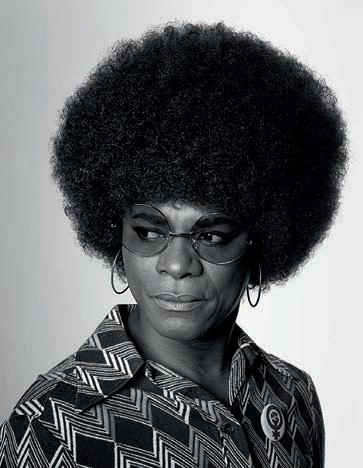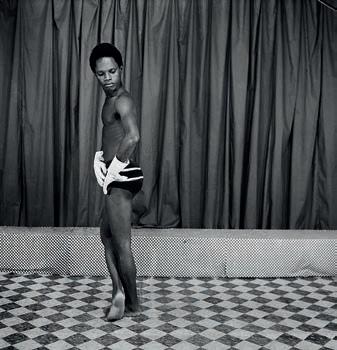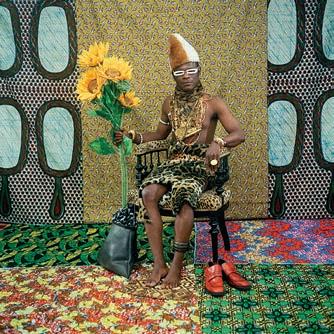
2 minute read
Klavdij Sluban. Introduction by Željko Kozinc Biography by Christine Delory-Momberger
Samuel Fosso
PHOTO POCHE
12.5 × 19 cm 144 pages 77 black and white and color photographs softback photo poche n° 168 june 2022 retail price: 13.90 €
Since 2004, Christine Barthe has been a chief photography and heritage curator at the Quai Branly Museum. She curated several exhibitions like D’un regard l’autre, the Photoquai biennial (since 2007) and more recently an exhibition devoted to contemporary photography, À toi appartient le regard, the catalogue of which was published by Actes Sud in 2020.
Introduction by Christine Barthe
Born in 1962 in Cameroon, Samuel Fosso opened his first studio in Bangui at the age of 13. Its slogan: “With Studio National, you’ll be beautiful, chic, delicate and easy to recognize”. From the outset, he used whatever was left of his commercial reels to take photos of himself in iconoclastic poses and roles. His self-portraits of the 70s Lifestyle series, initially intended for only his close entourage, were revealed in 1993 by the photographer Bernard Descamps who was looking for new talent to exhibit at the first Rencontres Photographiques festival in Bamako. There, Samuel Fosso won first prize and his artistic career took off. His work is primarily self-portraits and understanding it involves cross-referencing his biography and photographic language. But these two dimensions do not account for the complexity of the work developed over forty years by this unclassifiable artist. Fosso first set out to be a healer, then a shoemaker, before finally flying in the face of expectations to become a major figure of contemporary photography in the early 21st century.
(© S. Fosso)
This book offers a complete retrospective of Samuel Fosso’s work, echoing the solo exhibition devoted to him at the Maison Européene de la Photographie late 2021. The work presents his emblematic series of various imagined alter egos, sometimes playing on stereotypes (Tati, 1997), sometimes playing on history (African Spirits, 2008), often with a touch of satire (Emperor of Africa, 2013; Black Pope, 2017). We also discover his more intimate work, like Mémoire d’un ami (2000) examining grief, Le Rêve de mon grand-père (2003), in which he explores the childhood he never had, and SIXSIXSIX (2015), a major addition to his recent works inspired by the pillaging of his studio and its painful aftermath.












